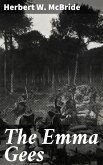In 'Fields of Victory' by Humphry Mrs. Ward, the author delves into the complexities of war and its effects on both individuals and societies. Through the lens of historical fiction, Ward explores the moral dilemmas, political intricacies, and personal sacrifices that come with battling for victory. The novel is written in a descriptive and emotive style, transporting readers to the battlefield and allowing them to experience the triumphs and tragedies of war. Set in a time when patriotism and honor were paramount, 'Fields of Victory' captures the essence of a bygone era while providing timeless insights into the human experience during times of conflict. As a prominent social reformer and writer, Humphry Mrs. Ward was deeply invested in exploring the societal implications of war and conflict. Her experiences living through tumultuous periods of history likely influenced her decision to write 'Fields of Victory'. Through her literary prowess, Ward brings to life the struggles and triumphs of characters caught in the chaos of war, shedding light on the universal themes of courage, sacrifice, and resilience. I highly recommend 'Fields of Victory' to readers interested in historical fiction that delves into the human experience during times of war. Humphry Mrs. Ward's masterful storytelling and insightful commentary make this novel a compelling read for anyone seeking a deeper understanding of the impact of warfare on individuals and societies.
Dieser Download kann aus rechtlichen Gründen nur mit Rechnungsadresse in A, B, BG, CY, CZ, D, DK, EW, E, FIN, F, GR, H, IRL, I, LT, L, LR, M, NL, PL, P, R, S, SLO, SK ausgeliefert werden.









